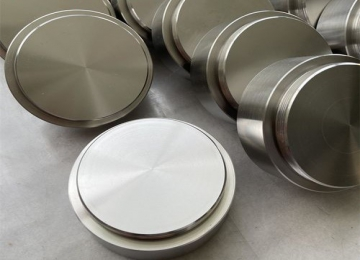
X12Cr13 is a nickel-free stainless steel, a martensitic stainless steel with good hardenability. It has high hardness, toughness, good corrosion resistance, hot strength and cold deformation performance, and good shock absorption. High or low temperature tempering is required, but tempering between 370-560°C should be avoided.
Chemical composition of X12Cr13 stainless steel
Material | X12Cr13 | |||||
chemical composition | C | Si | Mn | P | S | Cr |
≦0.15 | ≦1 | ≦1 | ≦0.04 | ≦0.03 | 11.5-13.5 | |
Physical parameters of X12Cr13 stainless steel
Density (g/cm) (g/cm) | Magnetism | Specific heat 25℃(J/kg.℃) | Thermal conductivity 100℃(W/m.℃) | Thermal expansion rate 20~100℃(10/℃) |
7.70 | have | 460 | 24.9 | 9.9 |
Characteristics of X12Cr13 stainless steel
X12Cr13 is a stainless steel with a mainly ferrite structure and a chromium content between 11% and 30%. It has the characteristics of large thermal conductivity, small expansion coefficient, good oxidation resistance and excellent stress corrosion resistance. It is mostly used to manufacture parts that are resistant to atmospheric, water vapor, water and oxidizing acid corrosion.
Stainless steel is widely used in the automobile transportation industry due to its high strength, relatively lightweight, good energy absorption and safety properties. The exhaust pipe part of each car usually uses 40~50kg of ferritic stainless steel. This kind of stainless steel generally does not contain nickel, and sometimes contains small amounts of Mo, Ti, Nb and other elements to further improve its performance.
However, this type of steel has shortcomings such as poor plasticity and significantly reduced plasticity and corrosion resistance after welding, so it is limited in some applications. Through out-of-furnace refining technology (such as AOD or VOD), the content of interstitial elements such as carbon and nitrogen can be reduced, thereby improving the performance and application range of this type of steel.
In general, X12Cr13 stainless steel is widely used in manufacturing parts in corrosion-resistant environments due to its corrosion resistance, thermal conductivity and stress corrosion resistance. And in the automotive transportation industry, stainless steel is widely used because of its high strength, lightweight and good safety properties.
Advantages of X12Cr13 stainless steel stainless steel
X12Cr13 stainless steel has the following advantages:
High thermal conductivity: X12Cr13 stainless steel has a high thermal conductivity and can conduct heat quickly, making it suitable for applications requiring good thermal conductivity.
Small expansion coefficient: The expansion coefficient of X12Cr13 stainless steel is relatively small, which can reduce thermal expansion problems caused by temperature changes and improve the stability and reliability of parts.
Good oxidation resistance: X12Cr13 stainless steel has good oxidation resistance and can resist oxidation reactions, delay the oxidation process of the material, and improve the durability of the material.
Excellent resistance to stress corrosion: X12Cr13 stainless steel has good corrosion resistance in stress corrosion environments, and can resist corrosion damage caused by stress and increase the service life of the material.
Application of external refining technology (AOD or VOD): Through external refining technology (such as AOD or VOD), carbon, nitrogen, etc. in X12Cr13 stainless steel can be reduced
Uses of X12Cr13 stainless steel
X12Cr13 stainless steel is mainly used to manufacture parts that are resistant to atmospheric, water vapor, water and oxidizing acid corrosion. Due to its good corrosion resistance, it is suitable for parts working in these corrosive environments. Common applications include manufacturing chemical equipment, pipes, valves, pumps, pressure vessels, food processing equipment, and more. The oxidation and corrosion resistance of X12Cr13 stainless steel makes it an ideal material in many industries.

